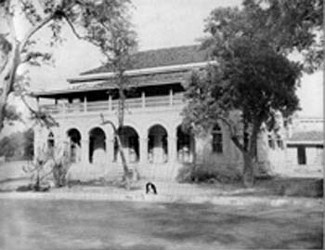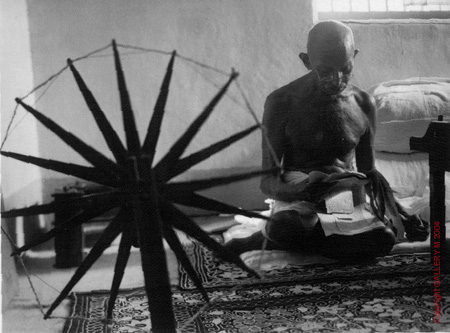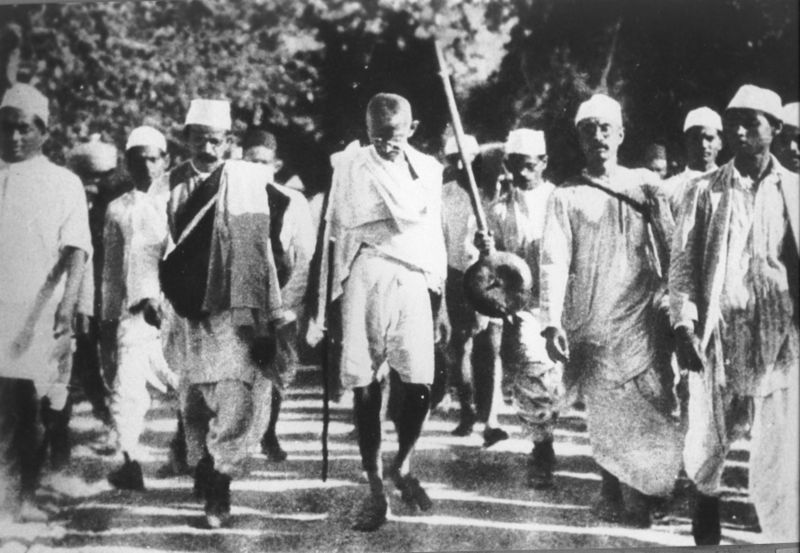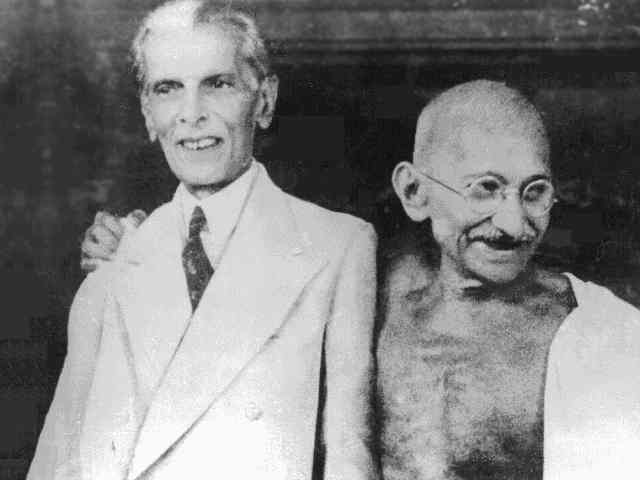Mohandas Gandhi
In 1858, "the British government decided to take
"Gandhi and Kasturbai arrived in

(Satyagraha Ashram at Kochrab, Ahmedabad, founded May 25, 1915. Digital image. MKGandhi. 25 Dec. 2008 <http://www.mkgandhi.org/gphotgallery/1915-1932/pages/a7.htm>.)
"In 1919, the British gave Gandhi something specific to fight against - the Rowlatt Act. This Act gave the British in
The "Jallianwalla Bagh Massacre, involved the killing of hundreds of unarmed, defenseless Indians by a senior British military officer, took place on 13 April 1919 in the heart of
Soon, "Gandhi...assumed the responsibilities of the president of Indian National Congress in 1921, and unleashed a series of reforms in the party ranks, thereby giving impetus to the non-cooperation movement, that by that time took the entire nation in its grip" (Gandhi and the Indian National Congress, 1). The "non-cooperation movement" was essentially rebellion without violence.
"[Gandhi] obtained a wheel, and he and his disciples began to wear homespun cloth called khadi. Its value was twofold. If everyone wore khadi, the half-starved, unemployed women of

(White, Margaret B. Gandhi. Digital image. Margaret Bourke-White Gandhi Gallery M. Time, Inc. 25 Dec. 2008 <http://www.gallerym.com/work.cfm?ID=91.>)
"The 'non-cooperation' movement was suspended in February 1922 when a score of Indian policemen were brutally killed by a large crowd at Chauri Chaura, a small market town in the United Provinces. Gandhi himself was arrested shortly thereafter, tried on charges of sedition, and sentenced to imprisonment for six years" (Jhaveri, 2). "He was released after 22 months" (Yates, 1).
"After his release from prison, Gandhi traveled throughout

(Salt March (1930). Digital image. Mahatma Gandhi - A Great Soul. 2006. 25 Dec. 2008 <http://www.gandhimemorial.org/gandhi%20pic/salt%20march.jpg.>)
"Another cause Gandhi supported was improving the status of members of the lower castes, or Harijans. On September 20, 1932, Gandhi began a fast for the Harijans, opposing a British plan for a separate voting body for them" (MOHANDAS GANDHI Biography, 1). Through his fast, "he had forced Hindus to accept untouchables not only as citizens with equal rights, but as human beings" (Feuerlicht, 12).

(Gandhi with Jinnah. Digital image. Gandhi and Children. 25 Dec. 2008 <http://www.ruraluniv.ac.in/Gandhi%20with%20Jinnah.JPG>.)
"Gandhi refused to join the official ceremonies in